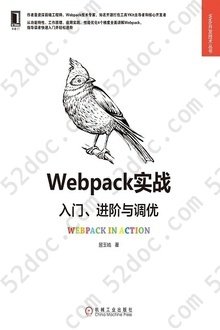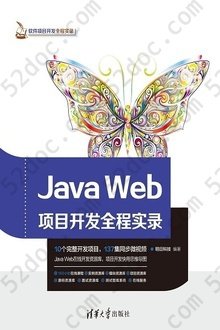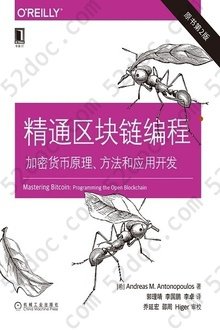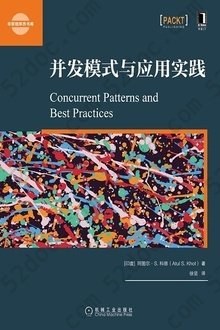注重体验与质量的电子书资源下载网站
分类于: 计算机基础 职场办公
简介
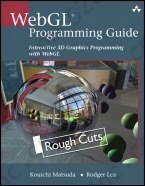
WebGL Programming Guide: Interactive 3D Graphics Programming with WebGL 豆 7.3分
资源最后更新于 2020-08-23 08:23:43
作者:Kouichi Matsuda
出版社:
出版日期:2013-01
ISBN:9780321902924
文件格式: pdf
标签: WebGL OpenGL Graphics 计算机科学 Programming 程序设计 游戏开发 学习
简介· · · · · ·
This is the Rough Cut version of the printed book.
WebGL brings plugin-free 3D to the web, enabling you to create sophisticated interactive 3D graphics right inside web browsers – perfect for games, user interfaces, and information visualization. The WebGL Programming Guide will help you get started quickly with interactive WebGL 3D programming, even if you have no prior knowle...
目录
Table of Contents
Contents
Chapter 1. An overview of WebGL
Advantages of WebGL
WebGL is derived from OpenGL
The Software Architecture of WebGL Applications
WebGL-enabled Browsers and Their Settings
Sample Programs and Related Links
Summary
Chapter 2. Your First Step with WebGL
What Is a Canvas?
The World’s Shortest WebGL Program: Clear Drawing Area
Draw a Point (1)
Draw a Point (2)
Draw a Point with a Mouse Click
Change the Point Color
Summary
Chapter 3. Drawing and Transforming Triangles
Drawing Multiple Points
Hello Triangle
Moving, Rotating and Scaling
Summary
Chapter 4. More Transformations and Basic Animation
Translate and then Rotate
Animation
Summary
Chapter 5. Using Colors and Texture Images
Passing other Types of Information to Vertex Shaders
Color Triangle (ColoredTriangle.js)
Pasting an Image onto a Rectangle
Pasting Multiple Textures to a Shape
Summary
Chapter 6. The OpenGL ES Shading Language (GLSL ES)
A recap of Basic Shader Programs
An overview of GLSL ES
Hello Shader!
Data (Numerical and Boolean Values)
Variables
GLSL ES is a Type Sensitive GLSL ES is a Type Sensitive Language
Basic Types
Vector Types and Matrix Types
Structures
Arrays
Samplers
Precedence of Operators
Conditional Control Flow and Iteration
Functions
Built-In Functions
Global Variables and Local Variables
Storage Qualifiers
Precision Qualifiers
Preprocessor Directives
Summary
Chapter 7. Towards the 3D World [This content is currently in development.]
Chapter 8. Lighting and Hierarchical Objects [This content is currently in development.]
Chapter 9. Advanced Techniques [This content is currently in development.]
Appendix A. No Need to Swap Buffers in WebGL [This content is currently in development.]
Appendix B. Built-in Functions of GLSL ES 1.0 [This content is currently in development.]
Appendix C. Projection Matrices [This content is currently in development.]
Appendix D. WebGL/OpenGL: left or right handed? [This content is currently in development.]
Appendix E. The Inverse Transpose Matrix [This content is currently in development.]
Appendix F. Loading Shader Programs from Disk [This content is currently in development.]
Contents
Chapter 1. An overview of WebGL
Advantages of WebGL
WebGL is derived from OpenGL
The Software Architecture of WebGL Applications
WebGL-enabled Browsers and Their Settings
Sample Programs and Related Links
Summary
Chapter 2. Your First Step with WebGL
What Is a Canvas?
The World’s Shortest WebGL Program: Clear Drawing Area
Draw a Point (1)
Draw a Point (2)
Draw a Point with a Mouse Click
Change the Point Color
Summary
Chapter 3. Drawing and Transforming Triangles
Drawing Multiple Points
Hello Triangle
Moving, Rotating and Scaling
Summary
Chapter 4. More Transformations and Basic Animation
Translate and then Rotate
Animation
Summary
Chapter 5. Using Colors and Texture Images
Passing other Types of Information to Vertex Shaders
Color Triangle (ColoredTriangle.js)
Pasting an Image onto a Rectangle
Pasting Multiple Textures to a Shape
Summary
Chapter 6. The OpenGL ES Shading Language (GLSL ES)
A recap of Basic Shader Programs
An overview of GLSL ES
Hello Shader!
Data (Numerical and Boolean Values)
Variables
GLSL ES is a Type Sensitive GLSL ES is a Type Sensitive Language
Basic Types
Vector Types and Matrix Types
Structures
Arrays
Samplers
Precedence of Operators
Conditional Control Flow and Iteration
Functions
Built-In Functions
Global Variables and Local Variables
Storage Qualifiers
Precision Qualifiers
Preprocessor Directives
Summary
Chapter 7. Towards the 3D World [This content is currently in development.]
Chapter 8. Lighting and Hierarchical Objects [This content is currently in development.]
Chapter 9. Advanced Techniques [This content is currently in development.]
Appendix A. No Need to Swap Buffers in WebGL [This content is currently in development.]
Appendix B. Built-in Functions of GLSL ES 1.0 [This content is currently in development.]
Appendix C. Projection Matrices [This content is currently in development.]
Appendix D. WebGL/OpenGL: left or right handed? [This content is currently in development.]
Appendix E. The Inverse Transpose Matrix [This content is currently in development.]
Appendix F. Loading Shader Programs from Disk [This content is currently in development.]


